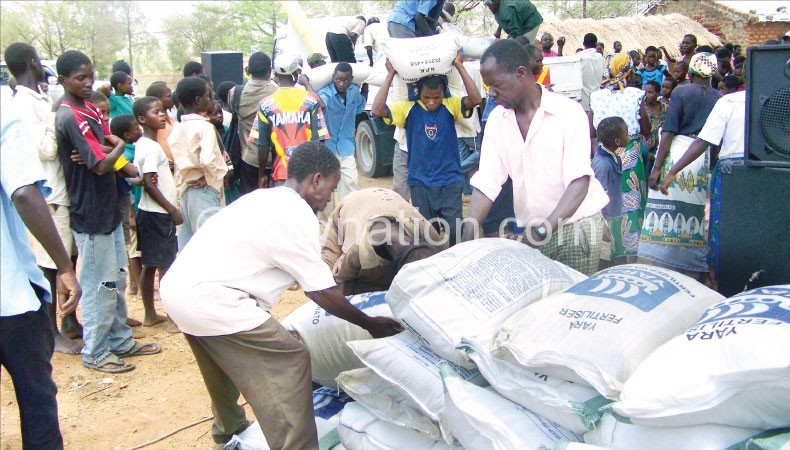Malawi yet to pay Fisp suppliers

Malawi Government is yet to settle payment in millions of kwacha to suppliers of fertiliser in 2013/14 Farm Input Subsidy Programme (Fisp), Principal Secretary two in the Ministry of Agriculture, Irrigation and Water Development Bright Kumwembe has said.
“It is true that we owe some suppliers but I do not have the exact figure. It could be in the region of K39 million but i am not very sure. This is the case because of the current financial problems government is facing but we want to assure our suppliers that we will definitely find resources to pay them,” he said on the sidelines of the Fisp evaluation dissemination workshop organised by the UK’s Department for International Development (DfID) and Farmers Union of Malawi (FUM) in Lilongwe.
He said government will allocate the payments in the forthcoming 2014/15 budget to make sure that all the suppliers get paid.
On the preparations for the 2014-15 Fisp, Kumwembe said government is on track because tenders were already floated in the press and if everything goes according to plan, they will open them on August 26 at 2 pm.
“We are very optimistic that we will meet all the deadlines because we already advertised the tenders in the press. According to MET (Meteorological) experts, the rains might start in November and by then we might be through with the process of distributing fertiliser.
“The most important thing is that many suppliers have the commodity already here and we are not panicking,” he said.
Kumwembe also said government will consider all recommendations from the meeting to ensure that this year’s programme is completed without many hitches.
DfID head of office Jen Marshal said Fisp is good value for money with benefits and cost ratios of greater proportions than those achieved since the programme started.
She, however, said that Fisp can further be strengthened with increased transparency and efficiency in input procurement, continued improvement in beneficiary selection, increased timeliness in input distribution and reaching more deserving poor farmers.
Since its inception in 2005/06, Fisp has contributed to increased national food security, achieving annual average maize surplus of 750 000 tons, above the national food requirements in good years.
DfID and other development partners, including Norway and Irish Aid, have for the past seven years been contributing to the purchase of quality seeds and legumes for 1.5 million poor smallholder farmers.





